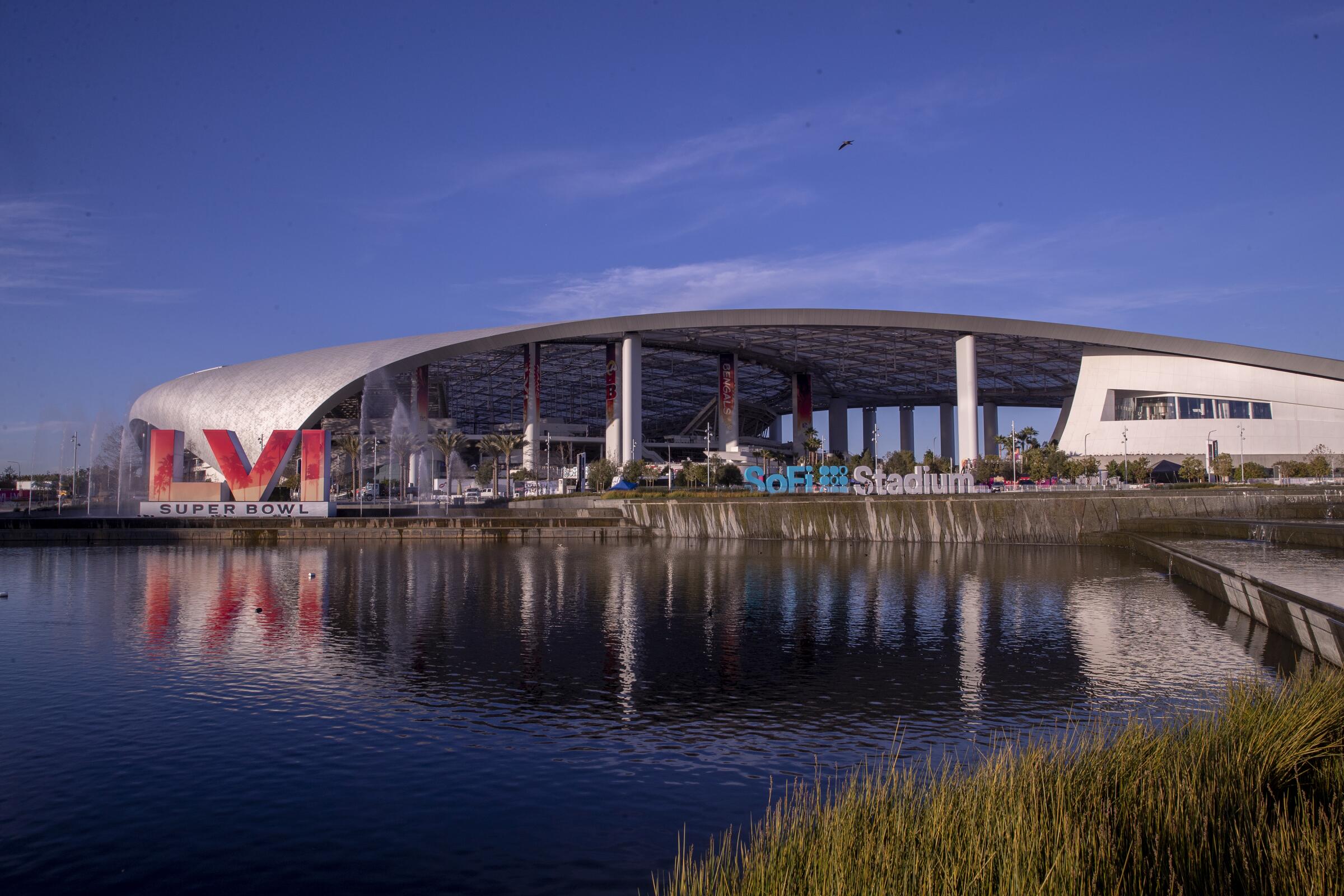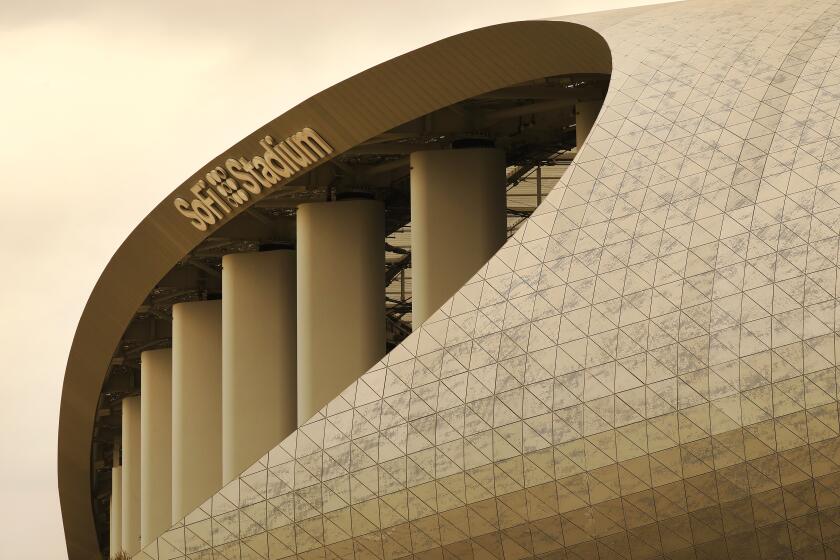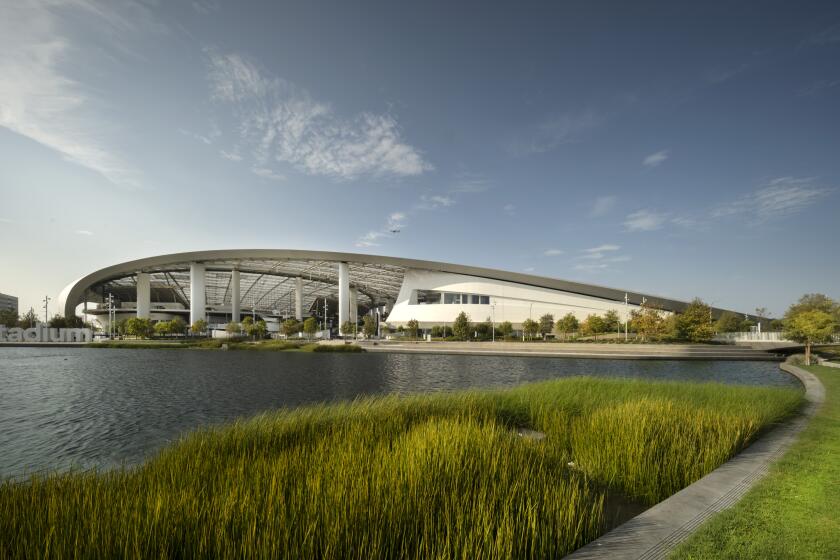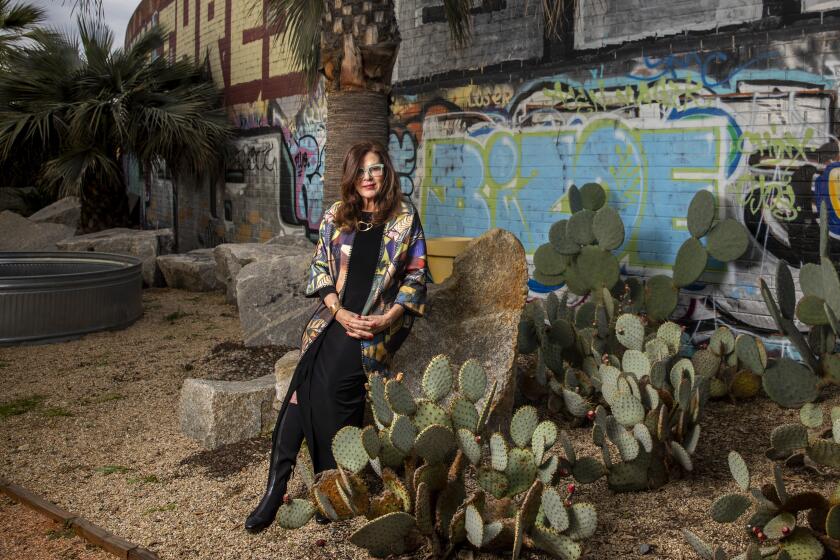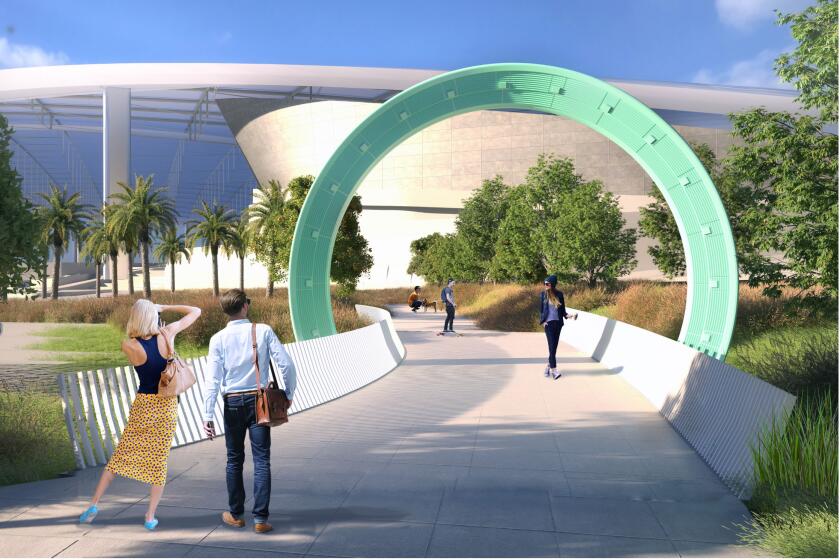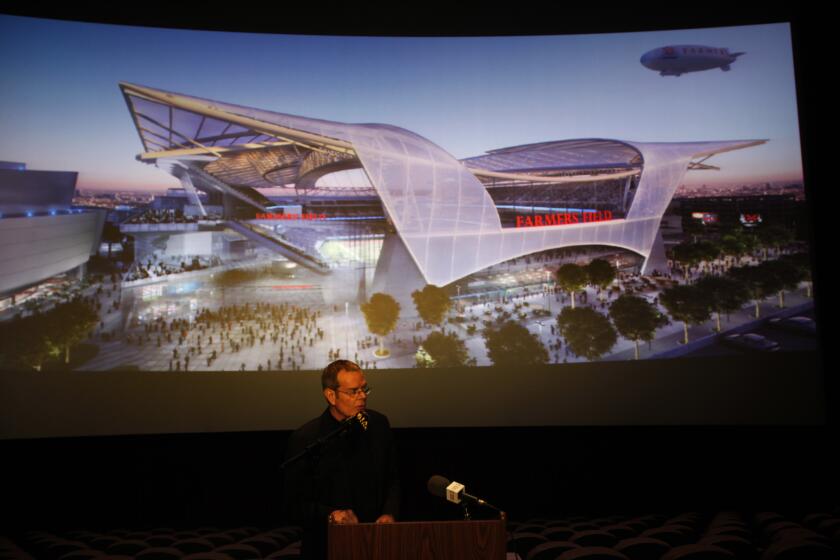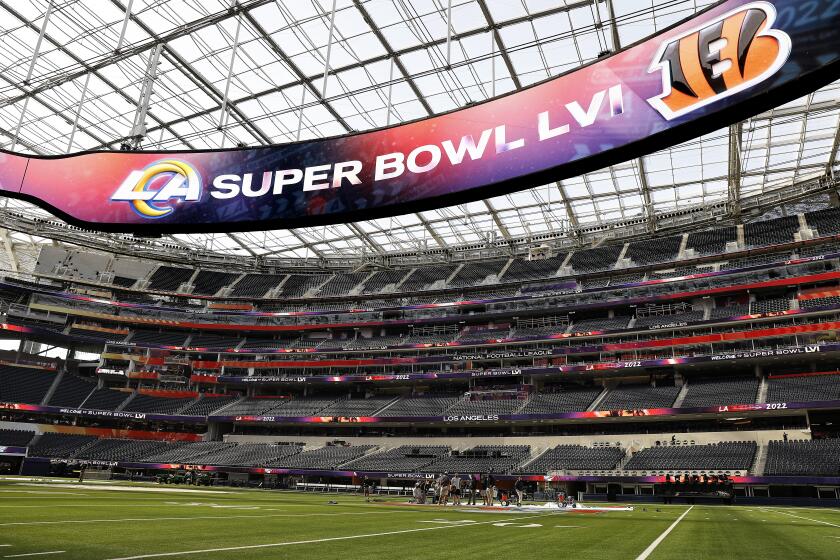SoFi Stadium began allowing fans into the site last spring, but Sundayâs Super Bowl LVI, with an expected global viewership of more than 145 million, is in many ways the venueâs true debut. And what a debut it will be.
The 3.1-million-square-foot $5-billion arena has plenty of superlatives attached to it. Itâs the largest stadium in the NFL. Itâs the leagueâs first indoor-outdoor stadium. And the standsâ steep vertical pitch allows fans to get startlingly close to the action. Hell, if you bathe in money and can afford one of the field cabanas, you could very well have a defensive lineman land in your beer.
The stadiumâs design is unique. Tucked into the earth so as not to interfere with the flight path of aircraft at nearby LAX, its scale, on approach, feels more intimate than a venue that seats 70,000. Moreover, its curling roof â which protects not only the field but also an adjacent plaza and the 6,000-seat YouTube Theater â is fritted and allows light to penetrate even as it offers protection from the sun. Instead of the usual stadium design with dreary passageways lined with concessions, SoFiâs open concourses allow spectators to pick up a hot dog while they keep an eye on the game. Everywhere, gardens embrace and surround the public areas. Adjacent to the site is the attractive Lake Park.
SUPER BOWL LVI LIVE UPDATES: Rams vs. Cincinnati Bengals at SoFi Stadium
